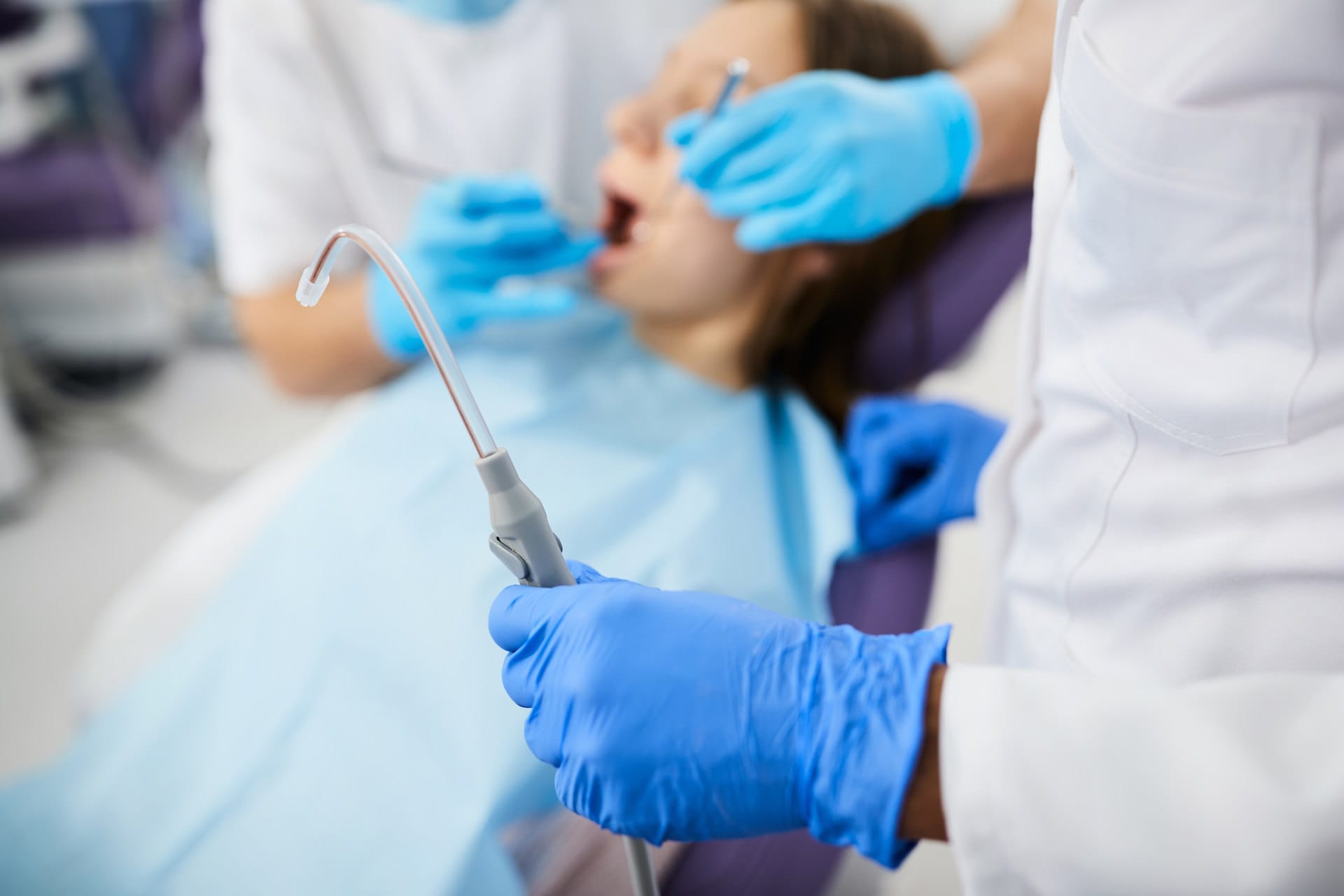The Key Differences Between Wet and Dry Dental Vacuum Systems

Choosing the right dental vacuum system is essential for maintaining an efficient and hygienic dental practice. A reliable vacuum system ensures effective suction, patient comfort, and compliance with infection control standards.
At SG Dental Supplies, we provide high-quality wet and dry dental vacuum systems across London, Surrey, Kent, and Sussex, helping dental practices make the best choice for their needs. In this guide, we’ll explore the key differences between wet and dry dental vacuum systems, their advantages and disadvantages, and how to determine which is right for your practice.
What is a Dental Vacuum System?
A dental vacuum system is responsible for removing saliva, blood, debris, and aerosols from the patient’s mouth during procedures. It plays a crucial role in:
- Maintaining a dry and clear working field for dentists.
- Enhancing infection control by safely disposing of fluids and contaminants.
- Reducing airborne particles, improving air quality in the surgery.
There are two main types of dental vacuum systems: wet and dry. Each has distinct features, benefits, and considerations.
What is a Wet Dental Vacuum System?
A wet vacuum system (also known as a wet ring system) uses water to generate suction and transport waste. It relies on a water ring pump, where a continuous flow of water creates suction and moves waste through the system.
Advantages of Wet Dental Vacuum Systems
- Powerful Suction – Provides strong and consistent suction, making it ideal for high-demand surgeries.
- Quieter Operation – Wet vacuum systems tend to run more quietly than dry systems.
- Lower Upfront Cost – Generally, wet systems cost less initially than dry vacuum systems.
Disadvantages of Wet Dental Vacuum Systems
- High Water Usage – These systems require a constant water supply, leading to higher utility costs.
- Environmental Impact – The large volume of water used makes them less eco-friendly.
- More Maintenance – Regular cleaning is required to prevent limescale buildup and blockages.
At SG Dental Supplies, we stock high-quality wet vacuum systems that deliver reliable performance while minimising maintenance challenges.
What is a Dry Dental Vacuum System?
A dry vacuum system operates without water, using a motor-driven air pump to create suction. Waste is collected and separated from the air before disposal, making it more eco-friendly than a wet system.
Advantages of Dry Dental Vacuum Systems
- Water Conservation – Dry vacuum systems do not require water, reducing operational costs and environmental impact.
- Lower Maintenance – No limescale buildup or water-related blockages.
- Energy Efficient – Advanced dry vacuum systems are designed to consume less electricity while maintaining strong suction.
- Compact Design – Many dry systems are smaller and easier to install, making them ideal for space-limited surgeries.
Disadvantages of Dry Dental Vacuum Systems
- Higher Initial Cost – Dry vacuum systems are more expensive upfront, but they save money on water bills over time.
- Noise Levels – Some models produce more noise than wet systems, although modern designs incorporate noise-reduction technology.
- Requires Proper Ventilation – Dry systems generate heat and may need additional cooling or ventilation to function optimally.
We supply top-tier dry vacuum systems that offer long-term savings and efficiency, making them an excellent investment for forward-thinking dental practices.
Which Dental Vacuum System is Best for Your Practice?
The choice between wet and dry vacuum systems depends on several factors, including practice size, budget, environmental concerns, and regulatory compliance.
Consider a Wet Vacuum System if:
- You want a lower upfront cost.
- You prefer a quiet and powerful suction system.
- You have access to a reliable water supply and don’t mind higher water consumption.
Consider a Dry Vacuum System if:
- You want a water-efficient and eco-friendly solution.
- You are looking for lower long-term maintenance costs.
- You have a modern practice with proper ventilation and energy-efficient equipment.
At SG Dental Supplies, we help dental practices across London, Surrey, Kent, and Sussex choose the right vacuum system for their specific needs.
Maintaining Your Dental Vacuum System
Regardless of the system you choose, regular servicing and maintenance are essential to ensure optimal performance and compliance with CQC regulations.
- Daily Cleaning – Flush the system at the end of each working day to prevent clogs.
- Filter & Trap Maintenance – Check and replace filters regularly to maintain efficiency.
- Professional Servicing – Schedule annual maintenance with SG Dental Supplies to keep your system in peak condition.
We offer comprehensive dental equipment servicing and repair, ensuring your vacuum systems run smoothly and meet regulatory requirements.
Why Choose SG Dental Supplies?
At SG Dental Supplies, we provide:
- A wide range of high-performance wet and dry vacuum systems.
- Expert installation and servicing to keep your equipment running efficiently.
- Competitive pricing with a price match guarantee.
- Fast delivery and installation across London, Surrey, Kent, and Sussex.
Not sure which system is right for your practice?
Contact us today for expert advice and personalised recommendations!
Final Thoughts
Both wet and dry dental vacuum systems have distinct advantages, and the right choice depends on your practice’s needs, budget, and sustainability goals.
A wet system is a cost-effective, high-suction option, while a dry system offers water conservation and long-term efficiency.
At SG Dental Supplies, we’re committed to helping you choose the best dental equipment for your practice.
Call us today to discuss your vacuum system requirements or browse our online store!
